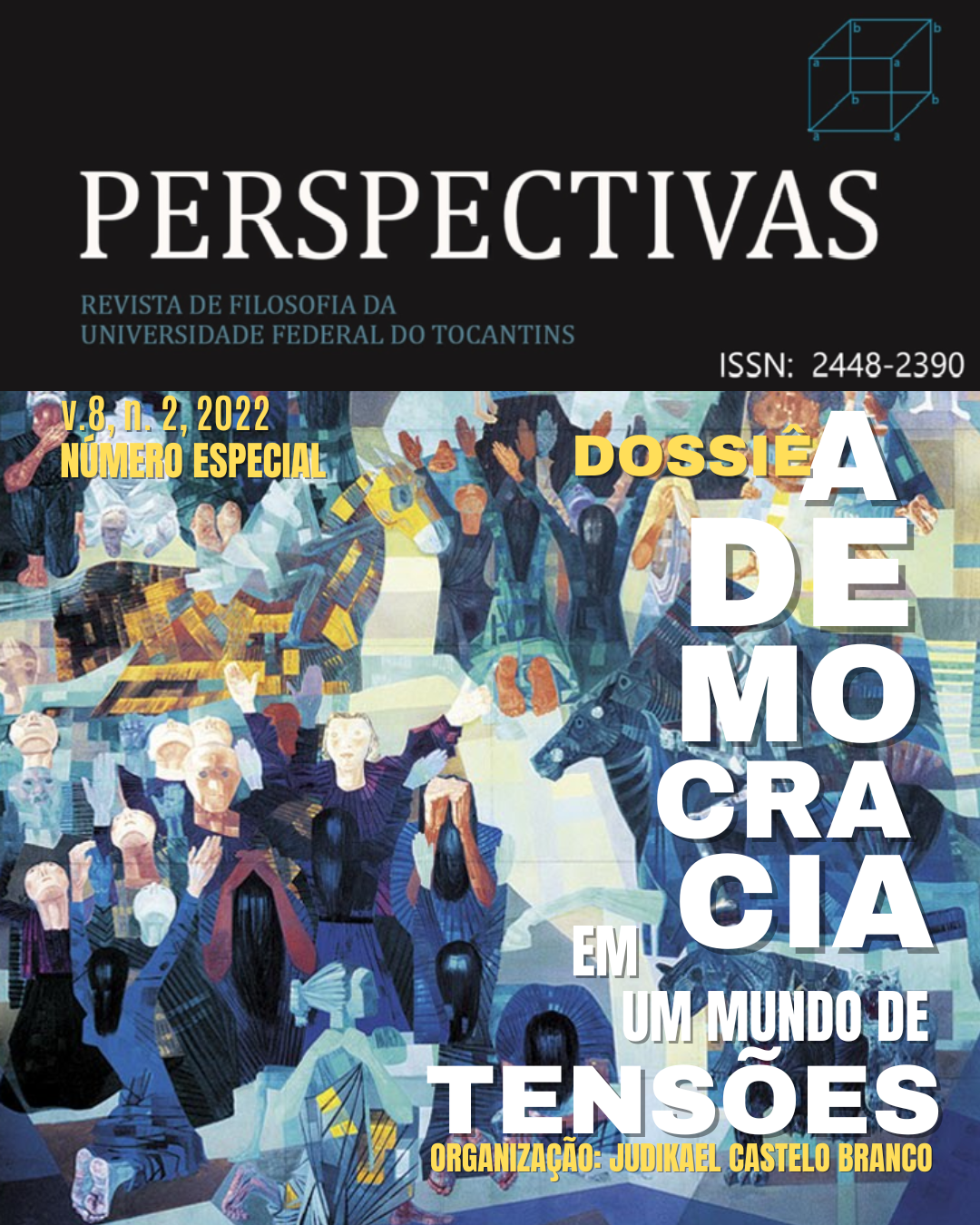Educação e contra-educação nas sociedades democráticas
DOI:
https://doi.org/10.20873/rpv8n2-79Palavras-chave:
Éducation, Démocratie, Pédagogie politique, Citoyenneté, Sociabilité.Resumo
A questão da relação entre educação e democracia emerge de duas perspectivas. Por um lado, está relacionada ao papel das instituições educacionais. Por outro, envolve o próprio processo democrático, ou seja, as interações e as relações de poder entre grupos e instituições no âmbito da delegação de poder, tomada de decisões coletivas e implementação das decisões tomadas. Neste artigo, buscarei desenvolver a ideia de que o processo democrático consiste em uma troca educativa entre a sociedade civil e o Estado, entre os governados e os governantes. Procurarei demonstrar que esse processo ocorre de tal forma que também produz efeitos contraproducentes à educação. O paradoxo do processo democrático reside no fato de permitir a tomada de decisões coletivas por meio de uma “pedagogia política”, enquanto, ao mesmo tempo, engendra um tipo de contrapedagogia ao despertar sentimentos antissociais. O resultado é uma variante política da sociabilidade sociável de Kant (ungesellige Geselligkeit), ou seja, uma forma de sociabilidade sociável que se manifesta não apenas em termos de cooperação social (como em "Ideia de uma História Universal com um propósito cosmopolita"), mas também em termos de ação coletiva para abordar problemas que só podem ser solucionados de forma conjunta, tanto em âmbito nacional quanto internacional. Pretendo extrair algumas conclusões dessa descrição em ambos os níveis.
Referências
CANIVEZ, P. Eduquer le citoyen? Paris: Hatier, 1995.
Downloads
Publicado
Versões
- 2026-01-30 (3)
- 2023-09-20 (2)
- 2023-09-18 (1)
Como Citar
Edição
Seção
Licença
Copyright (c) 2023 Patrice Canivez

Este trabalho está licenciado sob uma licença Creative Commons Attribution 4.0 International License.
Os autores que publicam com esta revista concordam com os seguintes termos:
1. Autores mantêm os direitos concedidos à revista ou o direito de primeira publicação com o trabalho licenciado à Atribuição de Licença Creative Commons Atribuição 4.0 Internacional (CC BY 4.0) que permite o compartilhamento de trabalhos com reconhecimento de autoria e publicação inical nesta revista.
2. Autores têm permissão para aceitar contratos, distribuição não exclusiva da versão do trabalho publicada nesta revista (por exemplo, publicarem em repositório institucional ou como capítulo de livro) com reconhecimento de autoria e de publicação inicial nesta revista.
3. Autores têm permissão e são estimulados a publicar e distribuir o seu trabalho on-line (por exemplo, em repositório institucional ou em sua página pessoal) com as devidas referências à revista.





















